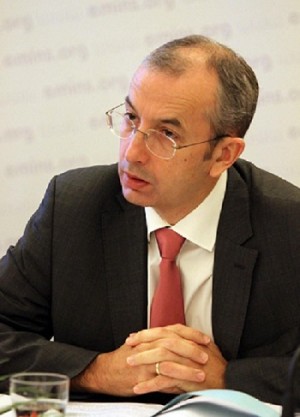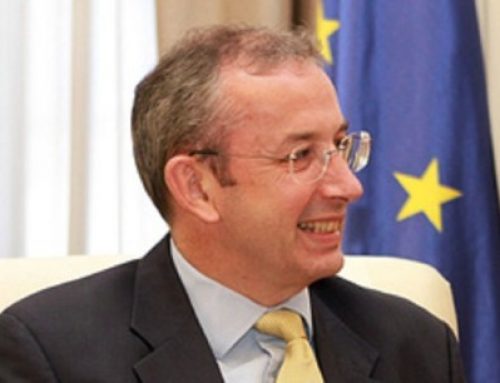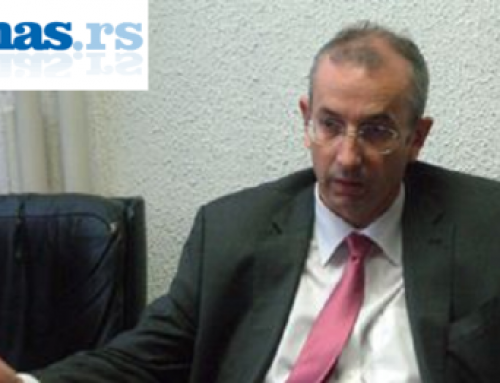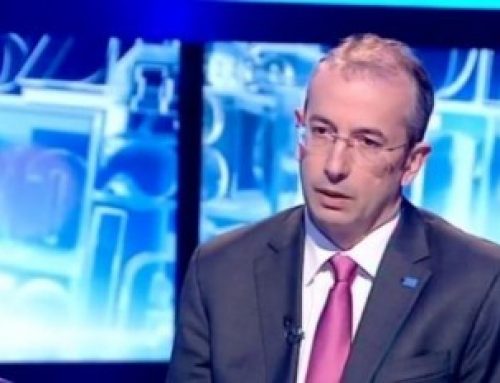EU is ready to include Serbia in the project of construction of gas inter-connector with Bulgaria, which would be a new source for gas supply. Serbian companies involved in the project would benefit too, the Head of EU Delegation to Serbia Michael Davenport told in an interview to Blic daily, following Russia’s decision to stop South Stream project.
Asked if Brussels felt responsible for Russia’s decision to cancel the project “because of the EU,” Davenport said that “the European Commission takes note of Gazprom’s decision to stop South Stream.”
“The EU’s position towards South Stream did not change. Gas pipelines across the EU must be built and operated in line with EU legislation. South Stream, as any other project in the EU can only be developed and operated fully in line with EU law,” Davenport said.
“Pipelines developed and operated in conflict with EU law endanger the functioning of the internal market and may fall short of any expected improvements in security of supply,” he said.
“European Commission’s services will now analyse the situation in South-East Europe in view to accelerate the interconnectors in the region to integrate them better in the EU pipeline network,” he added.
Commenting Russian ambassador to Serbia Aleksandar Chepurin’s statement that Serbia should seek compensation from the EU for losses it encountered regarding the South Stream, Davenport said that compensation clauses should be part of the contracts for this particular project.”
“Therefore, countries that have bilateral agreements for the South Stream pipeline should revert to their contracts. The European Commission is not a signatory of these bilateral contracts and agreements, hence it is not the right address to seek compensation from,” he said.
Answering the question what can the EU offer in the energy sector to Serbia that can compensate for South Stream, Davenport said that Serbia as a member of the Energy Community Treaty is committed to restructuring and modernising its energy sector and that the EU is Serbia’s main partner in this endeavour.
“The Energy Community Treaty aligns South East Europe with the EU’s internal energy market. The EU’s rules and regulations on energy guarantee fair competition among energy companies. This in turn benefits consumers in terms of energy prices and security of supply,” he said.
“In this context the EU is committed to co-funding the construction of a gas interconnector with Bulgaria. Work on the feasibility study has been completed with EU financial support and design of this pipeline is under way. This project will bring important work for Serbian engineering and construction firms. It will contribute substantially to Serbia being able to access alternative sources of gas supplies, including `liquid natural gas (LNG). Negotiations on this project are ongoing and Energy Minister Antic has a few days ago made a reference to this project as being an important element of Serbia’s aims to modernise and diversify its energy sector,” Davenport added.
He said “the EU remains open to supporting all energy sector projects which respect the international legal commitments of countries through which they pass.”
“Over the last ten years the EU has invested over €500m in non-returnable grants in the Serbian energy sector. This investment has prioritised the modernisation of Serbia’s electricity production and transmission systems,” the EU ambassador said.
Asked if there was any EU pressure on the Serbian government or Prime Minister Vucic to give up the construction of South Stream through Serbia, Davenport said “there has been no pressure on Serbia, or any other country related to South Stream.”
“The Commission has informed the concerned EU Member States already in August 2013 about its concerns as regards the compatibility of the Intergovernmental Agreements (IGAs) with EU law.
“In line with the European Council Conclusions of June 2014 the Commission re-iterates that ‘relevant energy infrastructure investments, including those involving third countries, should be pursued in full respect of all the EU’s internal market and competition rules, which must be consistently enforced’,” he said.
Davenport explained that “The EU’s objections to the IGAs did not relate to the pipeline itself, but several conditions of its operation which were contrary to EU laws and fundamental principles of EU energy policy. The EU had also offered to help renegotiate the Inter-Governmental Agreements between Russia and the South Stream countries in order to ensure that these conditions of operation be revised.”




